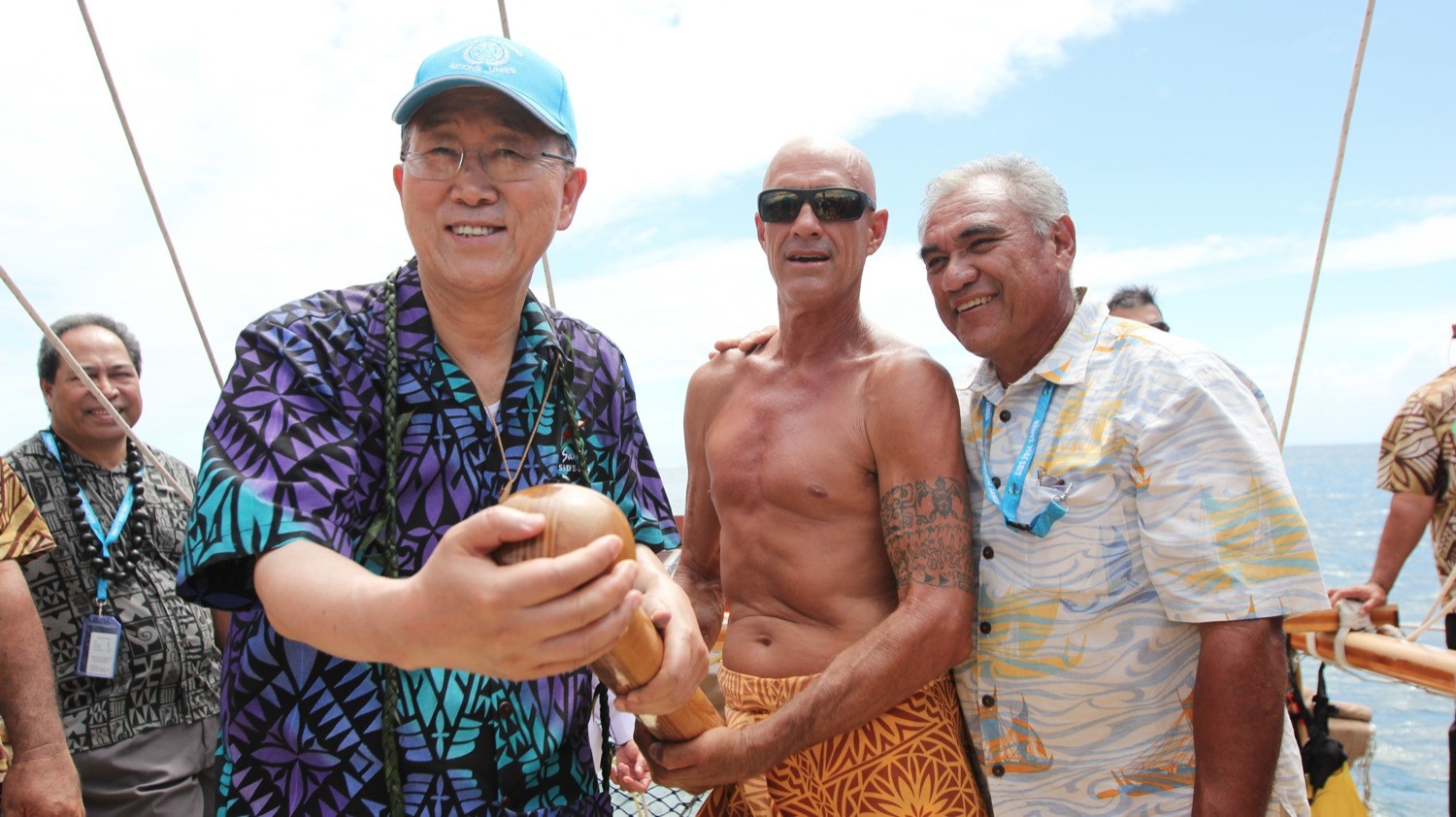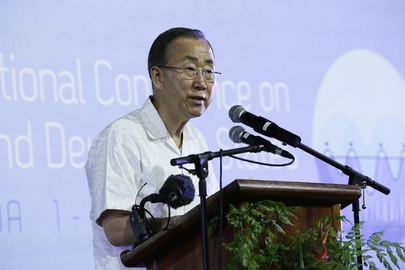Members of the developing world – many of them indigenous people — mingled Monday night with environmentalists at Lincoln Center in New York where the Equator Awards honoured examples of sustainable development solutions for people, nature and communities.
“Tonight, we’re celebrating heroes – all representing grass roots,” said Connie Britton, the United Nations Development Programme’s Goodwill Ambassador, who added that the time for “aggressive action” had arrived.
Among the 25 awardees were a bird sanctuary in Yemen; a conservation area that has reduced wildlife poaching in Nepal; a sustainable development group in Cameroon; a program that builds sand dams in Niger to increase food security; a group that has helped halve the childhood mortality rate in one area of Tibet; a traditional healers association in India; a sustainable forest management program in Papua New Guinea; and a program to aid the rural poor in Uganda.
Many of the projects show that “healthy, well-managed forest can lead to economic improvement,” said Jane Goodall, the founder of the Goodall Institute.
“Forests are the lungs of the world,” she said. “Forest is a way of a spiritual connection with Mother Nature.”
But forests are under attack in many places, said Andrew Steer, president and CEO of the World Resources Institute, who noted that 38,000 parcels of land the size of Central Park are lost every year.
“When the tree falls in the forest does it make a sound?” he asked. “You bet it does.”
One way to stop the noise and to stop deforestation, he said, is to “give legal rights to communities.”
He noted that advances have been made, and indigenous people are now using smart phones and apps to document the destruction of forests.
“The bad guys can’t hide any more, and the good guys can be rewarded.”
The challenges are daunting, “but I don’t want you to get hung up on how hard it is, how big and scary the problem is,” said former Vice President Al Gore.
He predicted the world “will do what is right.”
A future generation will look back on these times, Gore said, “and will make a judgment about those of us who were alive when we had the privilege of doing this work.”
If they find themselves in a world marked by rising sea levels, millions of climate refugees, and the failure of governments and crops, “that generation would be well justified to look back on us and ask, ‘What were you thinking?’” he said. “How could you possibly have failed to see and hear and feel and connect the dots and understand and then rise up?”
But if that generation finds itself in a world filled with hope and marked by hundreds of millions of new jobs retrofitting buildings, installing solar panels and windmills and sustainable forestry and fishing, the judgment will be different.
“If they look at their own children and feel in their hearts that their children’s lives are going to be even better still, I believe they’re going to look back at us in our day and time and ask this question – How did you find the moral courage to shake off the lethargy, to open your eyes and open your heart and lift your hands to work, to build the future.
A big part of the credit will go to the men and women who were awarded the Equator Prize, he predicted.

















